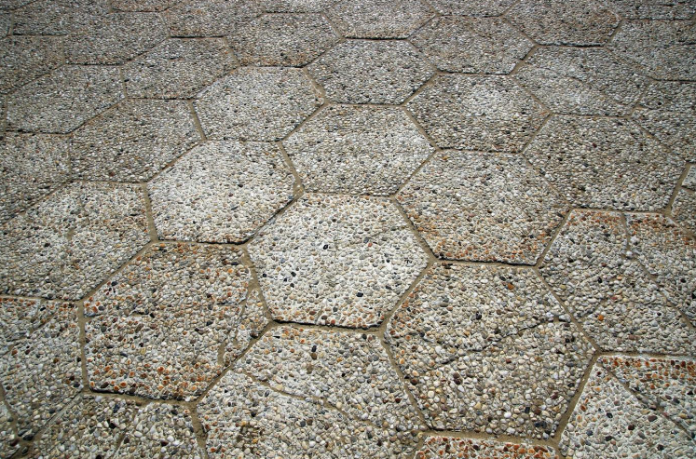The visual and practical integrity of outdoor spaces must maintain regular paver cleaning. Regular cleaning prolongs the life of pavers and improves their appearance by preventing damage from dirt, filth, and organic growth—something that is occasionally disregarded. Many patios and walks are constructed with pavers made of different materials needing different maintenance. Despite their reputation for longevity and adaptability, concrete pavers are susceptible to moss growth and discolouration, requiring periodic clean garden patios and paths. Brick pavers have a timeless appeal, but they need to be cleaned gently but thoroughly to prevent efflorescence. Natural stone pavers, such as those made of bluestone and limestone, are elegant in any environment, but maintaining their beauty requires regular cleaning.
Table of Contents
Concrete Pavers
Concrete pavers are a popular option due to their adaptability and reasonable price. It is now possible to construct patterns and designs that were previously unthinkable due to the wide range of sizes, colours, and forms available. For various outdoor area uses, concrete pavers are a great option because of their sleek and contemporary look. It is necessary to use caution when power washing concrete pavers to prevent damage. The goal should be to clean up any dirt on the surface.
Brick Pavers
The beauty and appeal of outdoor spaces are enhanced by the timeless and cosy touch brick pavers bring to any landscape design. It’s essential to clean brick pavers properly to maintain the brilliant colour and prevent moss and mould growth, which will keep these timeless features looking their best. Scrubbing the surface is necessary to prevent possible harm to the bricks. To get soap remains, rinse the area well with water after washing. More stubborn stains may removed with a vinegar and water mixture, but you must always do a patch test on a little discrete area beforehand.
Limestone Pavers
Given their distinctive texture and colour, limestone pavers are prized for their organic and refined appearance—and need special maintenance. Understanding how to properly clean limestone pavers is a crucial part of this maintenance. Because they can etch the surface, acidic chemicals should avoided while cleaning limestone pavers. Regular maintenance should include sweeping and washing with a light detergent solution. Specialised cleaning solutions are available for thorough cleaning of limestone pavers. These clean garden patios and paths solutions efficiently get rid of filth and stains without causing any harm to the stone.
Interlocking Concrete Pavers
Interlocking concrete pavers are designed to fit together tightly, creating a stable and durable surface. They are commonly used for driveways, walkways, and patios. These pavers can accumulate dirt and moss between the joints, but their interlocking design makes them relatively easy to maintain. Regularly sweep to prevent debris buildup. Pressure wash with a mild detergent and low-pressure setting. Remove weeds and moss from the joints to maintain a clean appearance.
Bluestone Pavers
Richly coloured and long-lasting bluestone pavers are perfect for high-foot-traffic areas. Like limestone, cleaning methods for bluestone pavers should be delicate. You are wondering how to clean bluestone pavers is simple and efficient. For necessary upkeep, routine sweeping and hosing down are adequate. Use a pH-neutral detergent and water for a more thorough cleaning. A soft brush and gentle scrubber can assist of built-up grime and dirt.
Porcelain Pavers
Porcelain pavers are a modern and durable choice for outdoor surfaces. They are resistant to stains, frost, and fading, making them a low-maintenance option. Porcelain pavers come in various colours and designs, offering a contemporary look for outdoor spaces. Sweep frequently to get rid of loose debris and dirt. Clean with a mild detergent and water solution. Make use of a vinegar and water solution or a non-abrasive cleaning agent.Porcelain pavers typically do not require sealing.
















